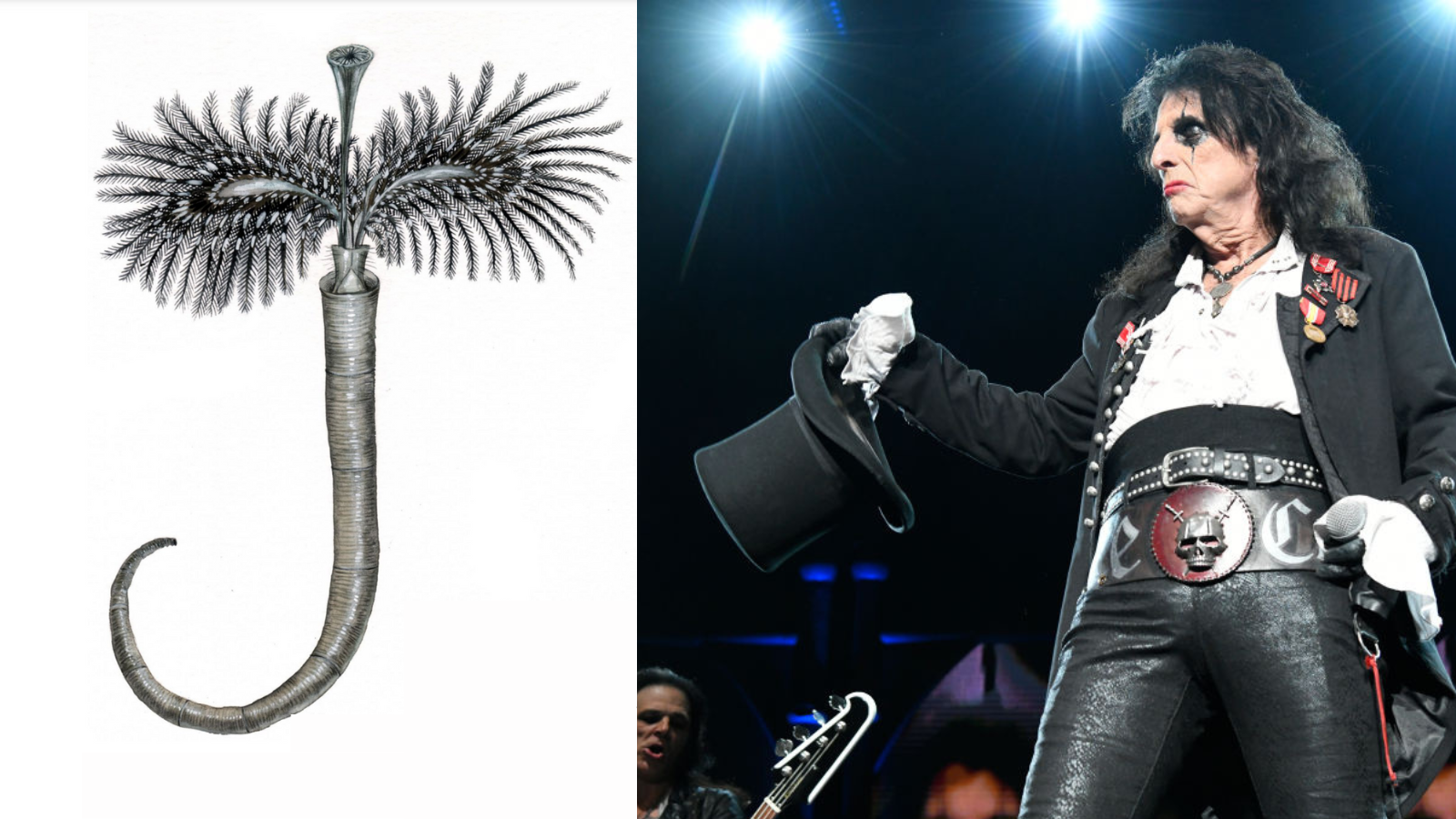Scientists name Jurassic marine worm after shock rock icon Alice Cooper
Worm discovered in 190-million-year-old fossil is named Serpula alicecooperi by metalhead Danish scientists

Danish scientists have named a newly-discovered Jurassic-period creature after shock rock icon Alice Cooper.
The 'Serpula alicecooperi' was discovered in a 190-million-year-old fossil found by amateur geologist Mette Hoftstedt.
It is described as a marine worm with a crown of tentacles and a protective tube it could hide in to avoid predators.
Hofstedt found the fossil on the Danish Island of Bornholm before it was studied by researchers Arden Basforth from the Natural History Museum of Denmark, Tomas Koči from the Natural History Museum in Prague, and Jesper Milàn and Sten Lennart Jakobsen from Geomuseum Faxe in Denmark.
Milàn says: "When we studied the fossil, it quickly became clear that it was a new and unknown species of serpulid worm we were dealing with.
"Being both a palaeontologist and a huge fan of metal and rock music, I have always thought that if somebody deserved to have a fossil named in his honour, it should be Alice for his enormous impact on the musical scene during the last half decade, and his music has been firmly playing in the background during much of my research.
"Serpulid worms were pioneers in their particular lifestyle when they first evolved, and they became an abundant element in the ocean's ecosystems at the beginning of the Jurassic period, about 190 million years ago, and they are still around to this very day.
Sign up below to get the latest from Classic Rock, plus exclusive special offers, direct to your inbox!
"Alice was a pioneer of the shock rock scene when he arrived during the late sixties, and he is still around to this very day."
The study can be found on the Danish Geological Association website.
Cooper is not the only rock star to have a fossil named in their honour. Black Sabbath's Tony Iommi was honoured in the same way, as was Motorhead's Lemmy, Cannibal Corpse's Alex Webster and King Diamond.
Other fossils have been named in honour of Gojira, Rotting Christ, Deep Purple's Ian Paice and Meshuggah's Tomas Haake.
Stef wrote close to 5,000 stories during his time as assistant online news editor and later as online news editor between 2014-2016. An accomplished reporter and journalist, Stef has written extensively for a number of UK newspapers and also played bass with UK rock favourites Logan. His favourite bands are Pixies and Clap Your Hands Say Yeah. Stef left the world of rock'n'roll news behind when he moved to his beloved Canada in 2016, but he started on his next 5000 stories in 2022.
